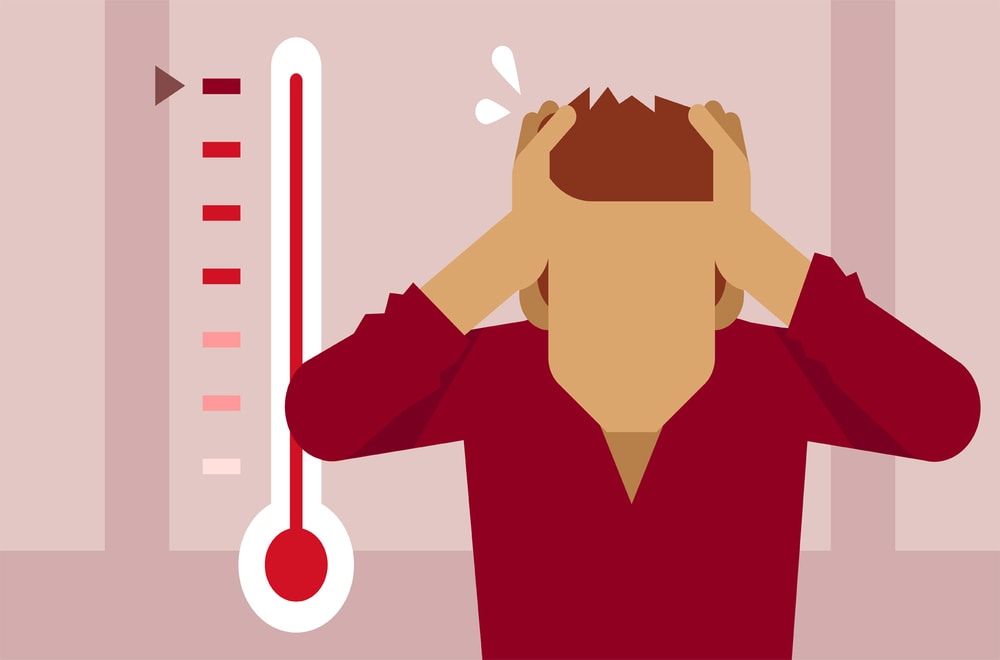Anger Management for Stress Relief

It’s natural to get angry from time to time. Anger can even be healthy. It serves some important functions, including moving us to action when things need changing in our lives.
Because of this, never getting angry isn’t a desirable goal. People who try for a complete lack of anger often end up just ‘stuffing’ their emotions, then ‘blowing up’ at inopportune times and causing more problems for themselves than if they had expressed their anger in healthy ways.
The goal of anger management is twofold: to eliminate unnecessary anger, and to express necessary anger in healthy ways.
The following anger management tips and exercises can help you with the dual goals of anger management, enabling you to enjoy healthier relationships and less stress in your life.
Tips for Anger Management
Examine Your Beliefs
This one can be tricky, but it’s a way to prevent some of your feelings from turning into anger in the first place. Examining your beliefs can be a way to eliminate unnecessary anger.
When you get angry, you can often trace the emotion back to a belief. This belief might be that:
- What happened was wrong
- It was not supposed to have happened
- It was due to someone else’s negligence
- It was due to a lack of care
Pinpointing the exact thoughts that are tied to your anger can enable you to talk yourself out of anger. It also helps you to realize that whatever it is that’s triggering your anger may not necessarily need to lead to an angry response.
Eliminate Some of Your Anger Triggers
It is also important to focus on some of the things that tend to trigger anger. For example:
- If you find that you often get angry in the car when you’re in a hurry and slow traffic makes you late, you can work on reorganizing your schedule to find a few extra minutes to accommodate traffic.
- You can play music during your commute to relax or use stress management techniques to calm your physiology.
- If you have a friend who constantly triggers your anger, you may want to look at the beliefs behind your anger with this person or limit your contact.
The point of all these strategies that reducing the likelihood of encountering stressful triggers can help keep your anger in check. Once you’re aware of what types of things make you angry, you can start working to reduce the frequency of their occurrence.
Develop Effective Communication Skills
Much of our anger tends to get directed at other people. Effective communication skills and conflict resolution techniques can help in two ways: They can help us communicate our boundaries to others so that we’re less likely to feel frustration and anger in our relationships, and they help us to do so in a way that doesn’t provoke anger in others.
Take Care of Yourself
If your body is under a lot of stress and strain, you may be more prone to anger in your daily life. For example, sleep-deprived people are often cranky. The same holds for hungry people.
If you’re able to create a nice work-life balance so that you have enough time outside of work to:
- Get quality sleep
- Eat a healthy diet
- Have some time for hobbies
- Pursue creativity
- Form healthy relationships
When you take care of yourself, you may find that you feel less tense and anger-prone.
Keep Some Stress Relievers Handy
When you’re having one of those days that you’ll scream if one more thing goes wrong, you usually do end up yelling at some point (figuratively or literally). Added stress can make you more anger-prone. Therefore, having stress management techniques on-hand to quiet the storm can help you soften or eliminate anger in your life.
Some techniques that are especially useful include:
- Breathing exercises: A few deep breaths can calm your stress response and enable you to feel more in control in virtually any situation.
- Progressive muscle relaxation: This can also offer some fast benefits, especially when practiced regularly.
- Cognitive restructuring: This technique can help you change some of your negative thoughts that contribute to stress and anger.
As for ongoing practices, meditation can provide some lasting benefits. Not only do you feel better when you’re practicing it, but it can help you be less reactive to stress overall. Exercise carries similar benefits.
Get Support If You Need It
While anger can push people away, it can also be a cry for help. If you find yourself angry more often than you’d like, you may just need more help and support from others.
For example, if a messy house puts you on edge, enlisting help with cleaning may be an effective anger management technique for you. If you find that you’re angry over constant ‘little things,’ perhaps you’re too busy and overwhelmed, and you need to cut back on your lifestyle stress. Don’t be afraid to ask others to help take some of the burdens off, if they’re able.
If you feel that your anger management efforts aren’t as effective as you’d like, it might be useful to enlist the support of a therapist. A mental health professional can help you take a deeper look at your anger and find ways to work through it and express it in healthy ways.
References
This article was written by Elizabeth Scott. You can read the original text here.







